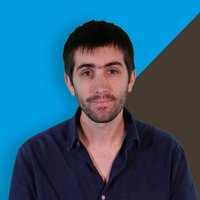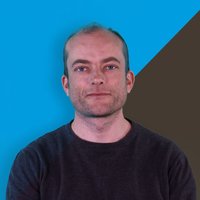MOOC Smartphonics
- Duration: 5 weeks
- Effort: 15 hours
- Pace: ~3 hours/week
- Languages: English and french
What you will learn
At the end of this course, you will be able to:
- identifier les différents capteurs d'un smartphone
- utiliser et choisir les applications qui permettent d'accéder aux capteurs
- utiliser votre smartphone pour réaliser des expériences en mécanique
- utiliser votre smartphone pour réaliser des expériences en optique
- utiliser votre smartphone pour réaliser des expériences en acoustique
Description
Your smartphone is a micro mobile lab!
In this online course open to all, we invite you to discover how to carry out scientific experiments with an object that you all have on you, your smartphone.
We will see that a smarpthone is full of sensors that contains accelerometers, magnetometers, light sensors, and even pressure sensor... It is therefore a real micro mobile lab.
We are going to show you how to exploit theses sensors to carry out scientific experiments in physics, chemistry and biology. For example you will run experiments in mechanics, in acoustics and in optics... You will, for example, estimate the mass of the Earth by dropping your smartphone and you will discover how to turn your smartphone into a microscope to measure pixel size or even see cells!
Welcome into the world of Smartphonics!
See you soon in this Mooc!
Format
This course is based on 4 weeks with instructional and pedagogical videos which are both in French and in English. You will also have exercises in French and English to check your knowledge. During this course, you will also carry out fun experiences at home that you will share with other learners! We are therefore going to create a real community around a new scientific field that we could call SMARTPHONICS!
For teachers, resources will be proposed that could be used in your classes.
Cette session du MOOC sera ouverte en continu, toutes les semaines seront ouvertes en même temps.
Des conférences expérimentales filmées vous permettront de découvrir et d'approfondir vos connaissances.
Différents niveaux d’investissements (essentiel, confirmé, expert) vous sont proposés selon vos envies et votre temps.
En plus des contenus proposés (cours et exercices de compréhension de type QCM), vous serez invité à publier sur la galerie expérimentale du MOOC, les photos des expériences que vous aurez menées chez vous.
Pour les enseignants, des ressources seront proposées qui pourront être utilisées dans vos classes.
Prerequisites
Il est conseillé d’avoir un bagage scientifique de niveau lycée (Terminale) pour suivre ce MOOC.
Assessment and certification
Des QCMs d’auto-évaluation très brefs après chaque vidéo vous permettront d’évaluer votre compréhension du cours au fur et à mesure de son déroulé. L’attestation de suivi dépendra de vos résultats à ces évaluations.
Des expériences seront à faire chez vous. Elles vous permettront de tester en pratique les concepts du cours. Vous pourrez poster la photo de votre expérience sur le reseau social Flickr. Un classement sera établi par les enseignants qui désigneront les dix premiers gagnants qui verront leur photo publié dans la page Infos du cours de la semaine suivante.
Une attestation de suivi avec succès vous sera remise à la fin du MOOC suivant votre résultat global.
Course plan
- Introduction
- Les capteurs d'un smartphone. Quelles appplications pour exploiter les capteurs!
- La chute libre, le pendule, la rotation, etc.
- Mesurer la vitesse du son, l'Effet Doppler, le phénomènes de battement
- Transformer son smartphone en microscope, mesurer la distance focale, etc...
Course team
Ulysse Delabre
Categories
Philippe Barberet
Categories
Organizations
License
License for the course content

Attribution-NonCommercial-NoDerivatives
You are free to:
- Share — copy and redistribute the material in any medium or format
Under the following terms:
- Attribution — You must give appropriate credit, provide a link to the license, and indicate if changes were made. You may do so in any reasonable manner, but not in any way that suggests the licensor endorses you or your use.
- NonCommercial — You may not use the material for commercial purposes.
- NoDerivatives — If you remix, transform, or build upon the material, you may not distribute the modified material.
License for the content created by course participants

All rights reserved
"All rights reserved" is a copyright formality indicating that the copyright holder reserves, or holds for its own use, all the rights provided by copyright law.



